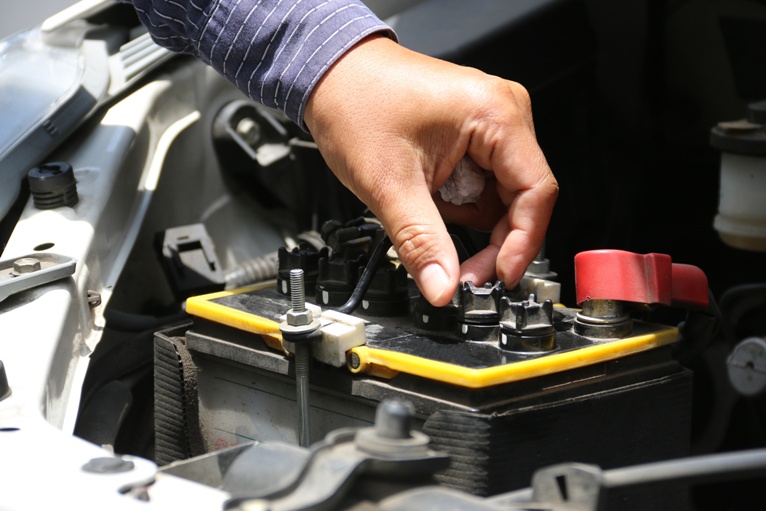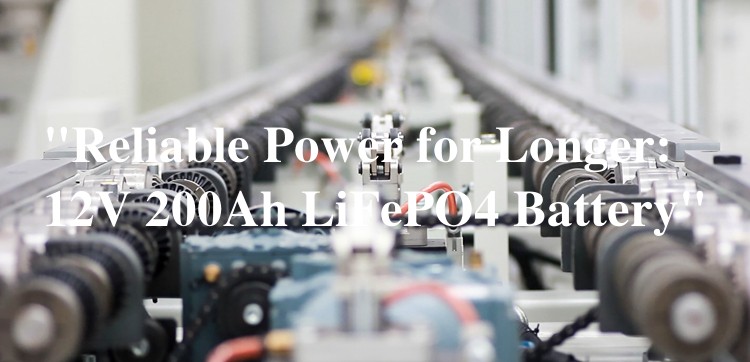Lithium Iron Phosphate Battery Prices: What You Need to Know
Lithium iron phosphate (LiFePO4) batteries are becoming increasingly popular in the energy storage industry due to their excellent safety record, long lifespan, and high energy density. As with any new technology, the cost of LiFePO4 batteries has been a major barrier to their widespread adoption. However, as production has increased and economies of scale have kicked in, prices have started to come down. In this article, we will explore the current state of LiFePO4 battery prices and what factors are driving their cost.
First, it is important to understand the key components of a LiFePO4 battery. The battery consists of a cathode (positive electrode), an anode (negative electrode), a separator, and an electrolyte. The cathode is made up of lithium iron phosphate, while the anode is typically made of graphite. The separator is a thin layer of material that keeps the cathode and anode from touching, while the electrolyte is a solution that allows ions to move between the electrodes during charging and discharging.
The cost of a LiFePO4 battery is primarily determined by the cost of its materials. The most expensive component is the cathode, which is made up of lithium iron phosphate, a relatively rare material that must be mined and refined. Other factors that affect the cost of LiFePO4 batteries include the size and complexity of the battery, the number of cells it contains, and the quality of the components used.
The price of LiFePO4 batteries has fallen significantly over the past decade, and is expected to continue to decline in the coming years. In 2010, the cost of a LiFePO4 battery was around $3,000 per kWh, while today it is closer to $200-300 per kWh. This dramatic drop in price is largely due to improvements in manufacturing processes, economies of scale, and increased competition.
One of the main factors driving down the cost of LiFePO4 batteries is the increasing use of automation in the manufacturing process. As more companies invest in automated production lines, they can produce batteries more quickly and efficiently, reducing labor costs and improving quality control. Additionally, innovations in battery design and chemistry are making LiFePO4 batteries more efficient and reliable, which is helping to lower costs even further.
Another key factor in the declining cost of LiFePO4 batteries is economies of scale. As production has increased, the cost of materials and components has fallen, making it more affordable to manufacture larger and more powerful batteries. This has led to the development of new applications for LiFePO4 batteries, such as in electric vehicles, which require large, high-capacity batteries.

Despite the recent price drops, LiFePO4 batteries are still more expensive than other types of batteries, such as lead-acid or nickel-cadmium batteries. However, LiFePO4 batteries offer several advantages over these other technologies, including longer lifespans, higher energy densities, and better safety records. As the market for energy storage continues to grow, it is likely that LiFePO4 batteries will become increasingly competitive with other battery types in terms of cost.
In conclusion, the cost of LiFePO4 batteries has dropped significantly in recent years, making them more affordable for a wider range of applications. Factors driving down the cost include improved manufacturing processes, economies of scale, and innovations in battery design and chemistry. While LiFePO4 batteries are still more expensive than other types of batteries, their superior performance and safety make them an attractive option for energy storage applications. As production continues to increase and new applications emerge, it is likely that LiFePO4 battery prices will continue to fall.
-
 Introduction: As the global energy demand continues to rise, it has become imperative to explore innovative solutions to meet this growing need sustainably. The integration of smart grids with lithium batteries presents a promising avenue for revolutionizing energy management. This article delves into the potential benefits, challenges, and future prospects of this integration. 1. Benefits of integrating smart grids...Citeşte mai mult
Introduction: As the global energy demand continues to rise, it has become imperative to explore innovative solutions to meet this growing need sustainably. The integration of smart grids with lithium batteries presents a promising avenue for revolutionizing energy management. This article delves into the potential benefits, challenges, and future prospects of this integration. 1. Benefits of integrating smart grids...Citeşte mai mult -
 The LiFePO4 battery, also known as the lithium iron phosphate battery, is a type of rechargeable battery that has gained popularity in recent years due to its high energy density, long cycle life, and safety features. However, like all batteries, LiFePO4 batteries have a finite lifespan and will eventually need to be replaced. In this article, we will explore the...Citeşte mai mult
The LiFePO4 battery, also known as the lithium iron phosphate battery, is a type of rechargeable battery that has gained popularity in recent years due to its high energy density, long cycle life, and safety features. However, like all batteries, LiFePO4 batteries have a finite lifespan and will eventually need to be replaced. In this article, we will explore the...Citeşte mai mult -
 Introduction Every car owner knows how important it is to have a reliable car starter battery. Without it, you can start your car and get where you need to go. The last thing you want is to be stuck on the side of the road with a dead battery. That why it essential to invest in a high-quality car...Citeşte mai mult
Introduction Every car owner knows how important it is to have a reliable car starter battery. Without it, you can start your car and get where you need to go. The last thing you want is to be stuck on the side of the road with a dead battery. That why it essential to invest in a high-quality car...Citeşte mai mult -
 The 12V 100Ah LiFePO4 Lithium Battery is a cutting-edge power source that offers superior efficiency and reliability for a variety of applications. This type of battery is becoming increasingly popular in the market due to its numerous benefits over traditional lead-acid batteries. In this article, we will explore the features and advantages of the 12V 100Ah LiFePO4 Lithium Battery. ...Citeşte mai mult
The 12V 100Ah LiFePO4 Lithium Battery is a cutting-edge power source that offers superior efficiency and reliability for a variety of applications. This type of battery is becoming increasingly popular in the market due to its numerous benefits over traditional lead-acid batteries. In this article, we will explore the features and advantages of the 12V 100Ah LiFePO4 Lithium Battery. ...Citeşte mai mult -
 With the rapid advancement of technology, the demand for efficient and reliable communication systems has increased significantly. Communication base stations play a crucial role in facilitating wireless communication networks. To ensure uninterrupted communication services, the use of high-performance energy storage systems such as lithium batteries has become essential. This article will discuss the benefits and applications of lithium batteries in...Citeşte mai mult
With the rapid advancement of technology, the demand for efficient and reliable communication systems has increased significantly. Communication base stations play a crucial role in facilitating wireless communication networks. To ensure uninterrupted communication services, the use of high-performance energy storage systems such as lithium batteries has become essential. This article will discuss the benefits and applications of lithium batteries in...Citeşte mai mult -
 In today's world, we are heavily reliant on portable electronic devices such as smartphones, laptops, and tablets. With the increasing need for uninterrupted power supply, people are turning to advanced battery technologies like Lithium Iron Phosphate (LiFePO4) batteries. One such battery that has gained popularity is the 12V 200Ah LiFePO4 battery. In this article, we will explore why this battery...Citeşte mai mult
In today's world, we are heavily reliant on portable electronic devices such as smartphones, laptops, and tablets. With the increasing need for uninterrupted power supply, people are turning to advanced battery technologies like Lithium Iron Phosphate (LiFePO4) batteries. One such battery that has gained popularity is the 12V 200Ah LiFePO4 battery. In this article, we will explore why this battery...Citeşte mai mult -
 The battery industry has experienced significant growth and change in recent years due to advancements in technology and the increasing demand for reliable and efficient energy storage solutions. With applications ranging from consumer electronics to electric vehicles and renewable energy, the battery industry is an essential component of modern life. Innovations in battery technology have made it possible to develop...Citeşte mai mult
The battery industry has experienced significant growth and change in recent years due to advancements in technology and the increasing demand for reliable and efficient energy storage solutions. With applications ranging from consumer electronics to electric vehicles and renewable energy, the battery industry is an essential component of modern life. Innovations in battery technology have made it possible to develop...Citeşte mai mult

